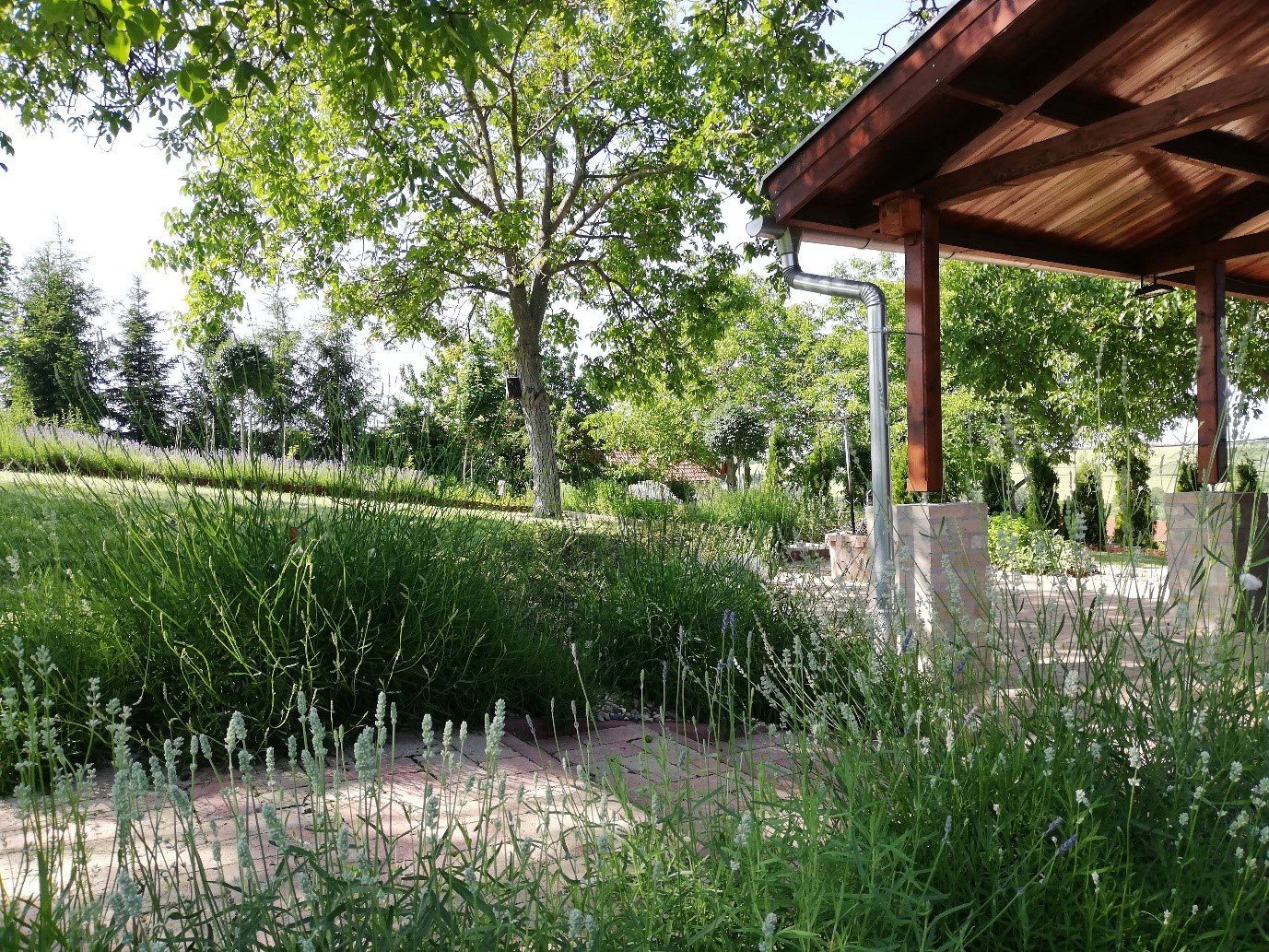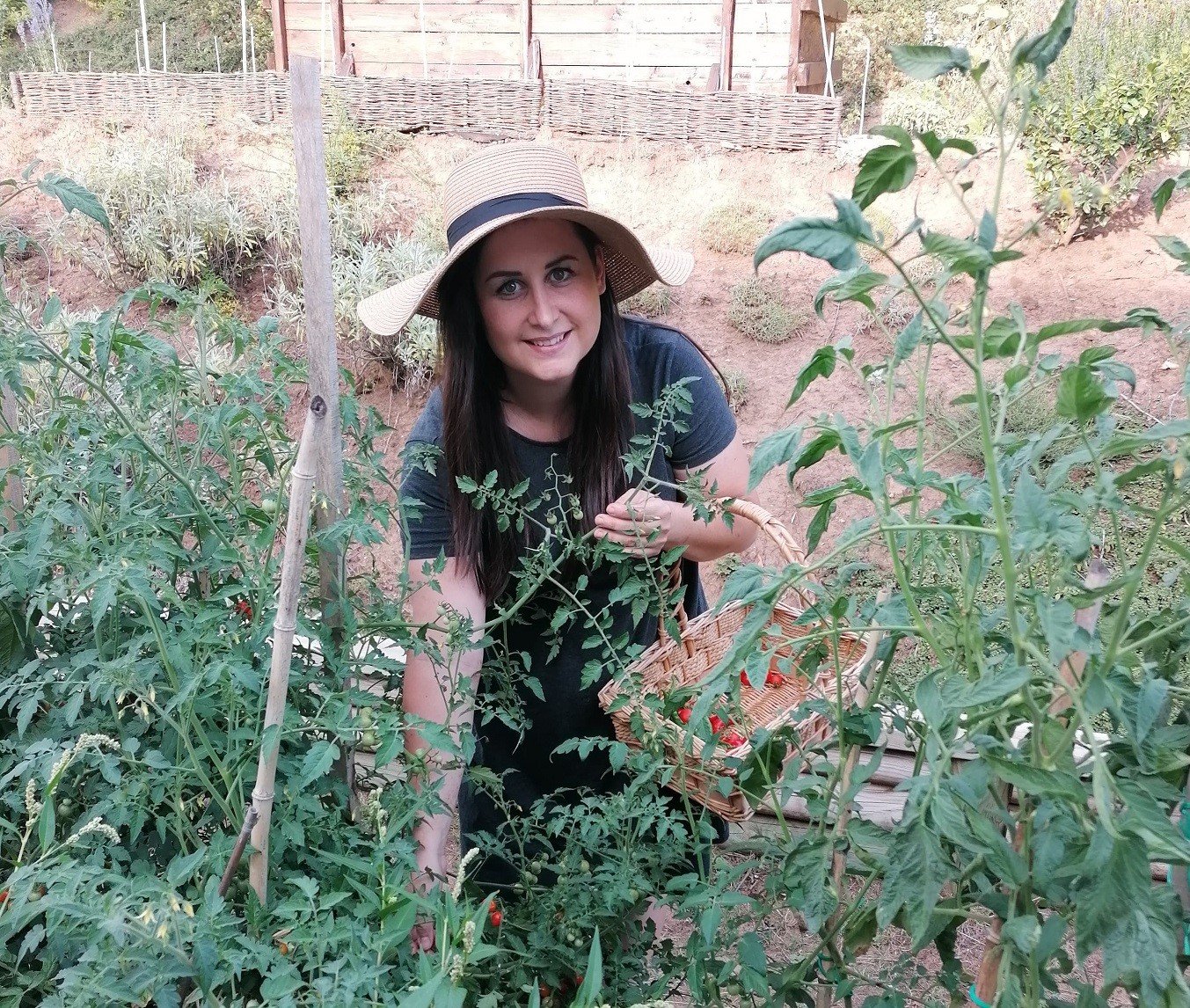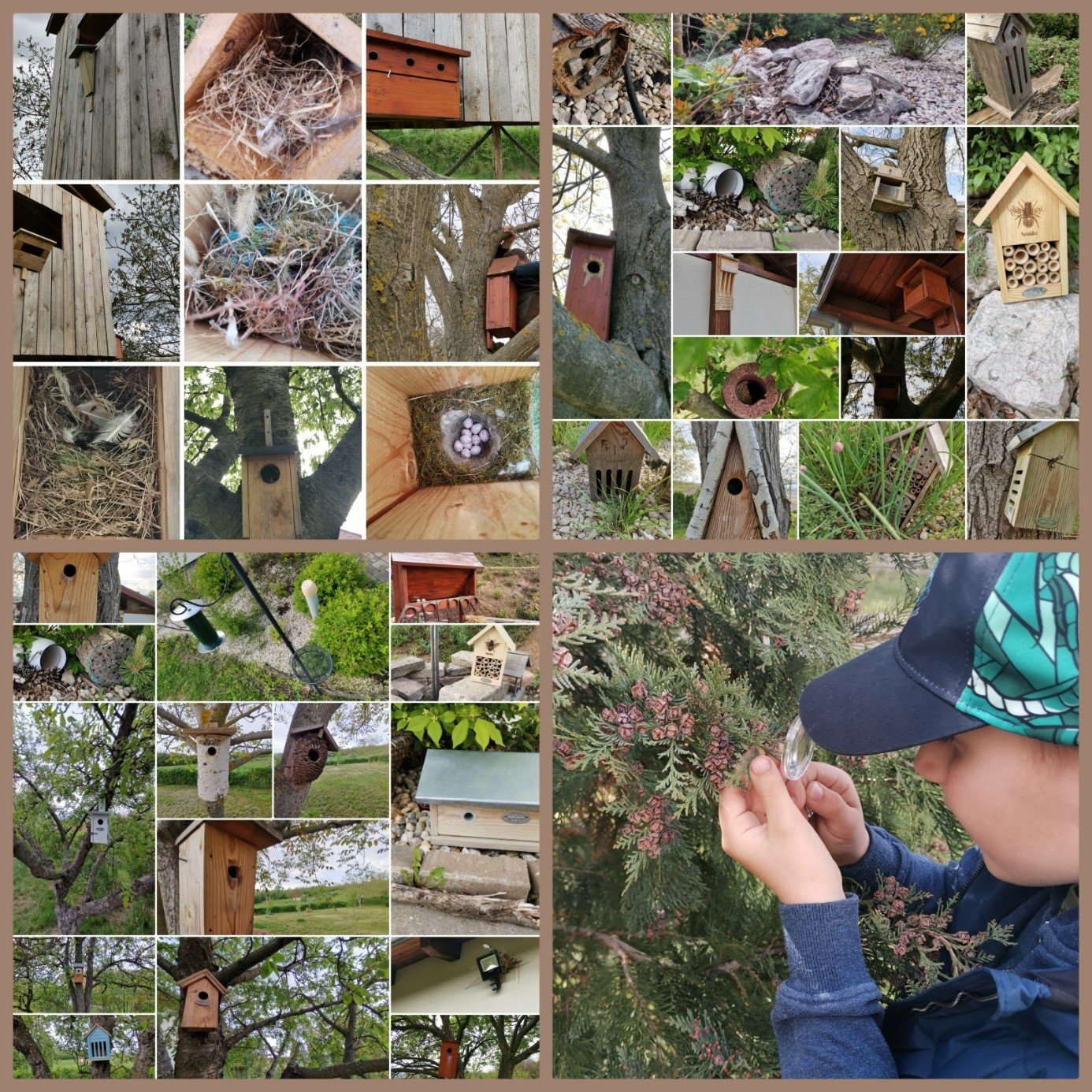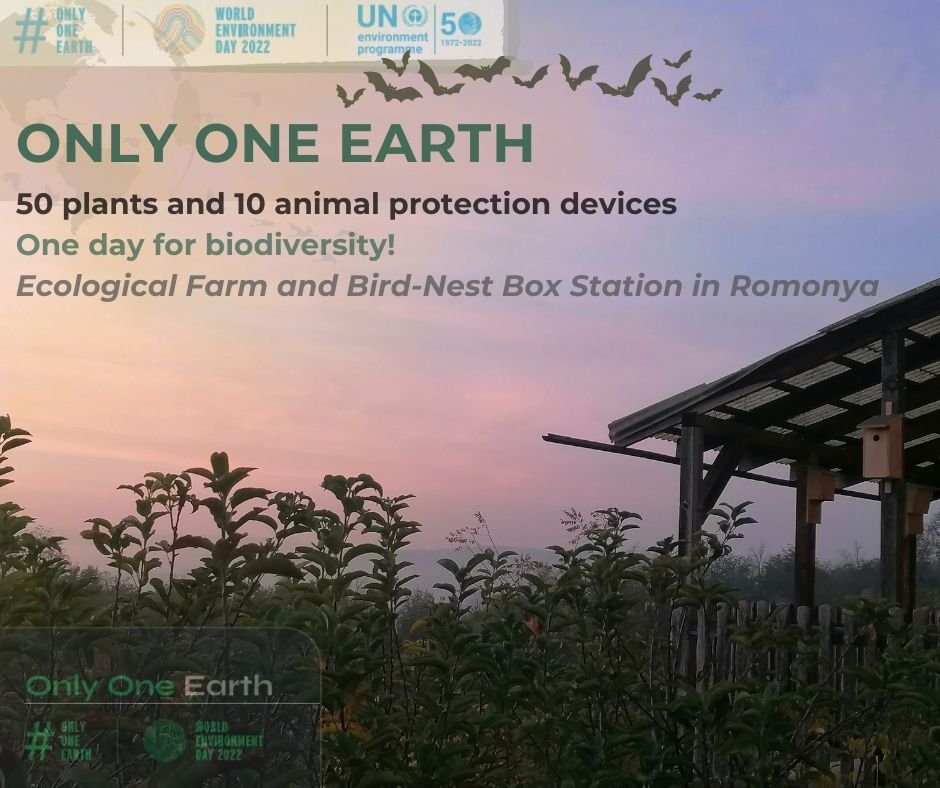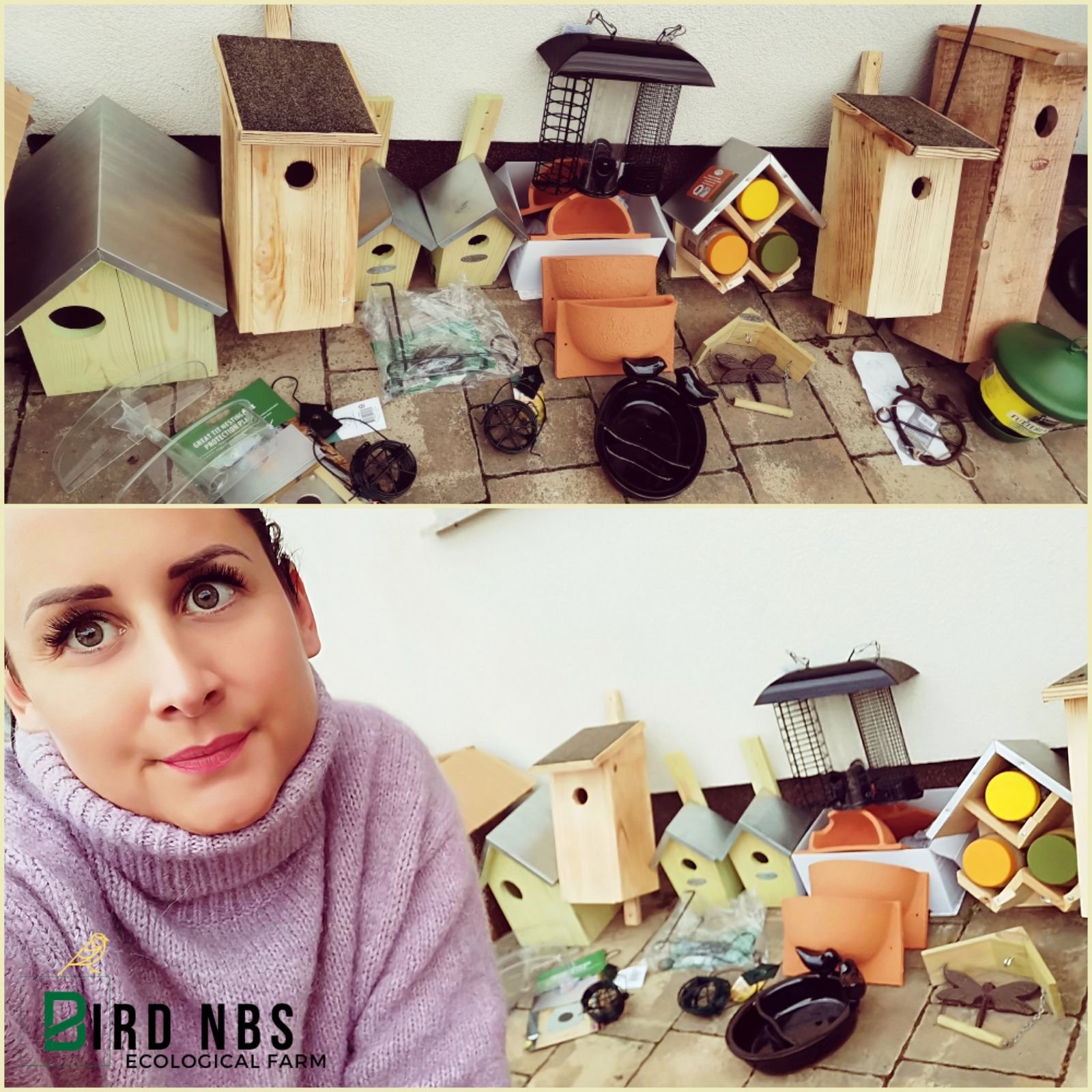Bird and Human Collaborations - Dreams of a Feasible Production System
by Boglárka Amrein Tamásné Miskolczi
I have been dealing with organic farming, the protection of native plants and the use of completely chemical-free production systems for several years, when I met the Hungarian Ornithological and Nature Conservation Association by chance. I was so captivated by their work, their achievements in bird protection, their enthusiasm and the values they represent that I joined their Bird-Friendly Garden program, and then I set out to create a bird house colony with only a few boxes. I will never forget the experience of finding the first egg and the moment when the first chicks hatched in our aviaries. I fell in love with birds at that moment.
The first chicks.
And as usually happens when someone falls in love: I dedicated my free moments to him. I learned a lot about how to protect them, how to farm without disturbing their living space, what is the ideal environment for them, and what small changes I need to introduce in our daily life to make them feel as at home as possible. I began to consciously shape and rebuild the natural environment: I planted native plants, pruned the bushes in a different way so that they were suitable for nesting, increased the berry stock so that they had as much food as possible, installed feeders and drinkers, I protected them from predators, and I constantly expanded the number of burrows. I tried to attract life to the garden by placing insect hotels, butterfly houses, ladybug boxes, lizard castles and dozens of other animal protection devices, and after two years of hard work, the farm suddenly started to live on its own.
Spice garden.
While only a few species of birds used to visit the feeder, suddenly there were dozens of them; hundreds of insects buzzed around the lavender, ladybugs happily ate the lice, dozens of green lizards chased the crickets, earthworms swarmed in the farmland, the plants turned green, and the harvest became abundant. It is no exaggeration to say that the garden and the farm as a whole have become a real garden of Eden. And this was irrefutable proof that if we let nature live, protect and support it, then we, as farmers, can get everything from it - we don't have to give up anything. You get it; you stay. Everyone gets what they want, and everyone is happy. For me, it has been conclusively proven that a balanced relationship between birds and humans, wildlife and humans, can indeed work and that it is possible to farm in such a way that we do not cause hard-to-heal wounds to the ecosystem.
Living nature.
And that's when I decided that I wanted to pass on this experience to others. I want to show other farmers and garden owners that with a little attention, you can create fantastic things and create real values. I have taken my studies to a professional level: I am training as a horticultural engineer at the Department of Ecology of the Hungarian University of Agricultural and Life Sciences, and I have completed several foreign university courses in the fields of ecosystem reconstruction, farmland protection, biodiversity, food supply and environmental protection. I created the Bird-Nest Box Station in the area of the farm, where today I demonstrate positive examples of the coexistence of humans and wildlife in an area of nearly four hectares. The station houses bat houses as well as a wide variety of insect houses, and in terms of bird species, we serve the needs of all species, from songbirds to birds of prey. During the nesting season, we help them with boxes, organic cotton nesting materials, predator protection, and winter, with the most varied seed foods, fats, fruits and the most diverse types of feeders. In winter and summer, we ensure adequate water supply and thanks to the self-healing, ever-growing natural environment, we create a real little island of peace for them.
I, the farmer.
Practical experiences have now become a real profession: I have dedicated my life to showing farmers a special way of thinking. In addition to social education, science also has a place in my life: in a complex research, I try to summarize the system of interactions between people and birds, paying particular attention to human-caused effects: from urbanization to the use of chemicals and to cutting down dead trees. I would like to create a manual that can be easily understood by laymen, which can help communities to achieve peaceful coexistence with the living world, and to recognize the impact we humans have on our environment - often without us even realizing it.
A piece of farm.
Communities need to be shown that by producing our everyday food, we already have a big impact on our environment - just think of greenhouse gases. Therefore, it does not matter how this process is carried out, with what means and under what conditions. We already use more land for agricultural production than we could, so we have to learn to make do with smaller areas. We need to understand the dynamism of our environment and the rules of nature and see the connections of the system. These are not big things, and they are not difficult; we just have to open our hearts to them. We have to accept that nature lives, enriches and grows even without us and that we are the ones who intervened in a functioning system. We must learn not to be the controllers of the system but to be part of it, we must recognize natural solutions, and ultimately, we must make do with what nature gives us. If we are able to reinterpret the meanings of food production and consumption, if we are able to change the practice, then we have the opportunity to create cooperation that is much more balanced: no hunger, no deprivation and no overproduction and waste.
A lot of houses.
During my conversations and writings, I often talk about my experiences, the road I've travelled - all its obstacles and how to overcome them. I try to take them back to the thousands of years of history of the trinity of man, food and nature, to the times when the principles of cooperation and coexistence that we long for still existed. I will show how much we can produce ourselves, with much fewer raw materials, without producing waste, and I will prove that a small change is enough to save the lives of entire populations.
And where am I now?
As a supporter of lifelong learning, I am constantly training myself so that I can use the acquired knowledge in practice and show it to others. As a guardian of good management, farmland protection, chemical-free and biodiversity, I try to spread good practice to the widest possible circle of the community. The fact that I am a member of many international organizations helps me a lot in this, so I am constantly joining promotions and actions.
One of the last programs.
I maintain a constantly building and healing ecosystem at the station and on the farm, which is home to more and more species - and I try to expand this as much as possible. Based on my practical experience and research, I am preparing the great work of my life: a summary of a special agricultural practice, which will be not only professional but also spiritual food for many.
And I left the most important thing for the end: I show not only my three wonderful children the thousand-faceted beauty of nature and respect for all forms of life but also to as many future nature lovers as possible because I believe that the future is in their hands. However, we have to lead them on the right path, and we have to build the foundation on which they will build the greenhouse of the future.
The children love birds.
I trust that my story can inspire others, and I encourage everyone to look for the opportunity and opportunity to connect: with each other, with nature, with common values and goals, and to raise your voice boldly for a more livable future!
With bird-friendly love:
About
I am Boglárka Amrein Tamásné Miskolczi, the owner, leader and project manager of the Ecological Farm and Bird-Nest Box Station. After my three degrees in the field of social studies, my love for nature took hold, and I completely changed my life. I dedicate my life to nature and science, including biodiversity, farmland protection, chemical-free farming and the relationship between birds and agriculture. My goal is to create a new, collaborative farming practice in which birds play a key role and in which not only production but also ecosystem restoration plays a key role. In addition to managing the farm, I am also involved in writing, research, social education and community programs, and I am interested in everything that is natural... I believe in a more livable future, and I am ready to do something for it!




